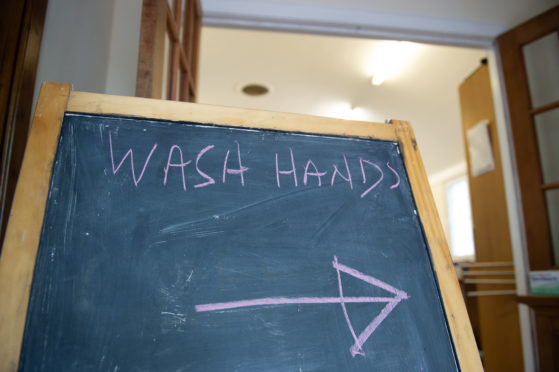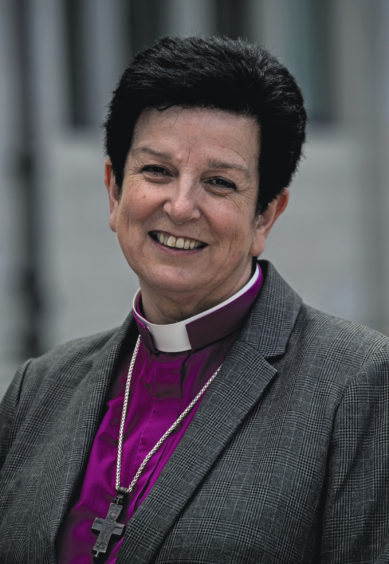Remembering those whose whole life is locked down.
There is a common joke that ministers of churches only work one day per week.
I have heard this hundreds of times, and every time I smile.
We clearly only work when we are seen, and the day that we are seen is Sunday. Of course, the truth could not be more different.
Church ministers work very hard every day.
If before the coronavirus we were only thought to work on a Sunday, then during the lockdown it might be expected that life has been very easy for us.
This also is very far from the truth. We have been home-working, and we are now very tired.
While at home church ministers have been upskilling, alongside many others including charity workers and many small businesses.
I have been running my diocese from my dining room. Before the virus I had been on Zoom a couple of times, now this is part of my everyday working pattern.
Like many others, I have learnt how to make films at home and record sermons and put them online.
I send out regular communications across Aberdeenshire and Orkney and Shetland.
Throughout the lockdown, church life has been run on a network, from home to home.
The churches, all denominations, have done the best they can with this, and actually we have done very well.
Church ministers have been very busy keeping in touch with members, making sure that they receive all the materials they need to stay connected to each other and to God.
For some, those for whom church attendance was a rare event for practical reasons related to age or health, the period of the lockdown has been rather wonderful.
For the first time in a long time some felt they were really part of the church again, being treated and resourced in the same way as everyone else.
The question is – what happens next?
We are all aware of the practical requirements of reopening our public life.
Our common desire to suppress the virus and so save lives means that we are adjusting to the demands of the coronavirus world. While at first it felt strange to go out shopping in a face covering, and to be careful in maintaining physical distancing, now it has a normal feel to it.
We will put up with these things in order to live a bigger and more expansive life, while protecting others at the same time.
Right now I am preoccupied with the reopening of churches. I am obsessing over hand sanitiser and face coverings.
I am worrying about church hygiene. I can see the challenge in wanting to be welcoming while at the same time asking people to stay away if they are not feeling well, and taking people’s personal details in case these are needed for contact tracing.
There is a real possibility that I might be using so much energy getting ready to welcome those who are able to come out to church again, that I forget all about those who will not be able to join us, including those who were not able to come out of their homes before this pandemic began.
And this might be the case in lots of areas of life. Before the pandemic there were lots of people who lived a lockdown life.
Age and various kinds of ill-health confined people to their homes. And of course, not just them, but also to a significant degree their carers.
Over the last few months we have been sharing some of their experiences. We now appreciate what it means to be confined.
We understand what is missed when a person is not free to go out when they want. We are frustrated when the world just does not work that well for us any more.
Because the whole nation was locked down, the way that we go about things was reconfigured, in the same way that churches adapted to being online and at home.
For these short number of weeks (because although it feels a long time, in reality it has not been that long) life was adjusted so that home became the centre of things.
We had the time and resources to do this because most of us were not going out.
Now, as we open up again, and lockdown restrictions ease, our time and energies will be concentrated on adapting the outside world so that we can go out safely.
Do we have enough time and energy to do this, while at the same time still making provision for those who were “locked down” before the lockdown, and remain so even now?
It would be really, really good if we could carry the memory with us of our experience of not going out, and use this to make sure that those who live at home all the time have a better experience of being a part of our common life.
The Rt Rev Anne Dyer is Episcopalian Bishop of Aberdeen and Orkney and Scotland’s first female bishop

